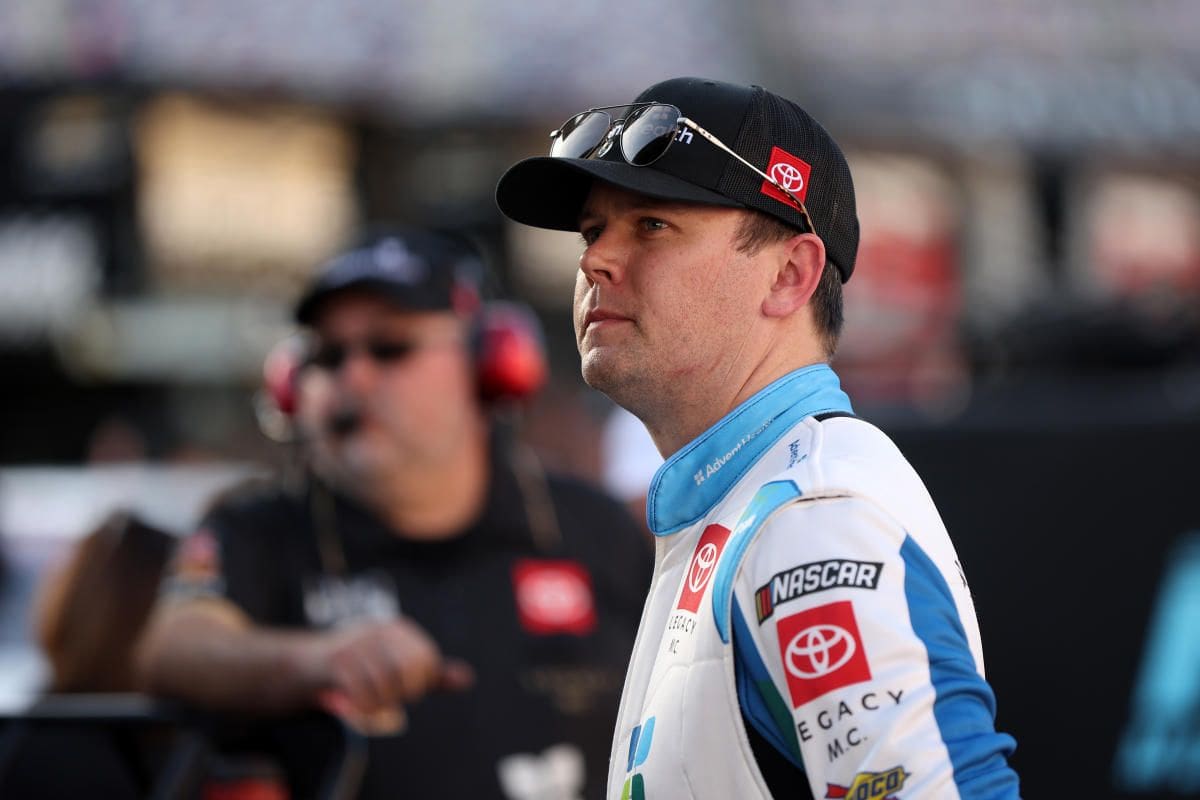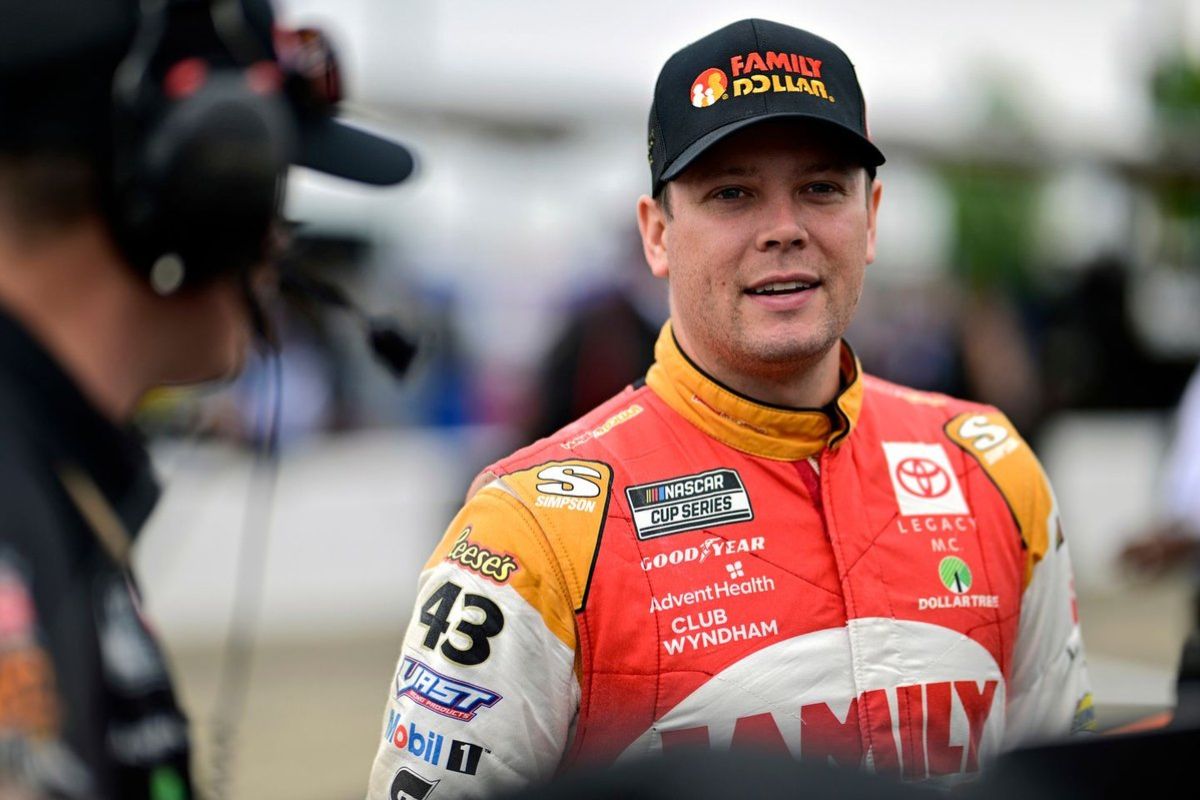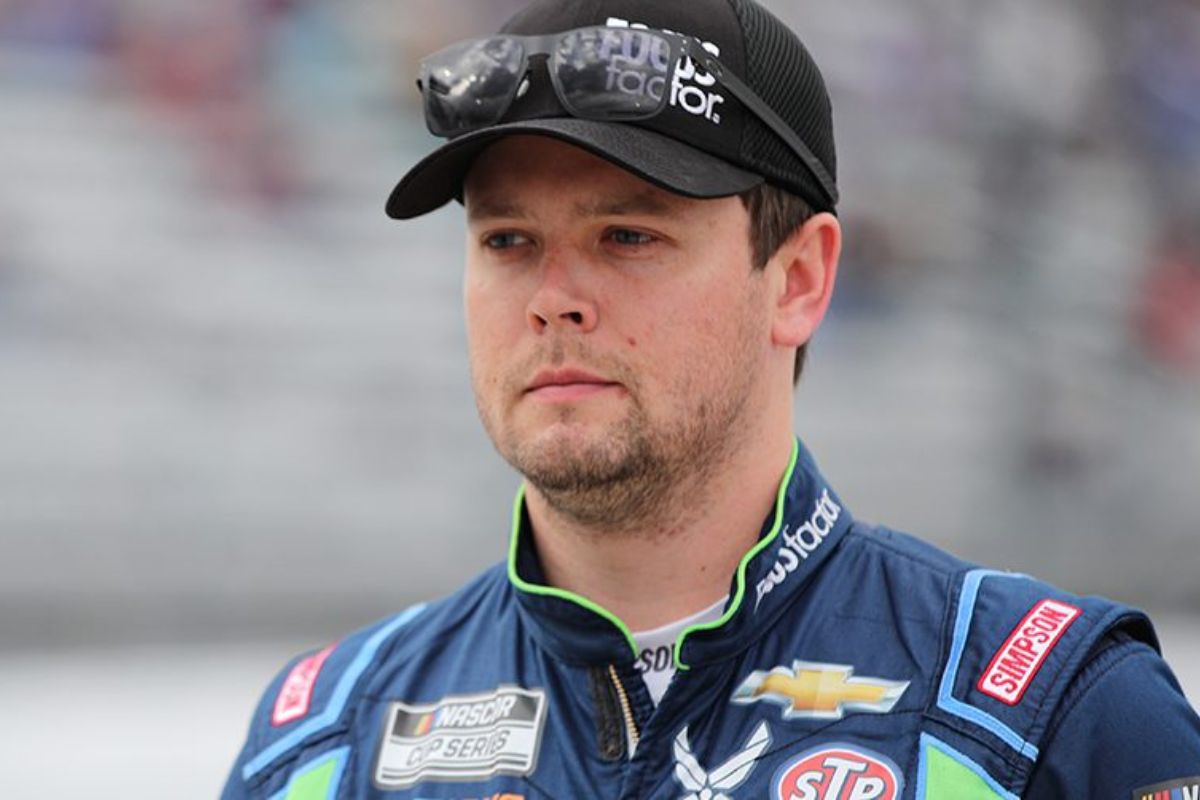Erik Jones Shuts Down Wrecking Strategy: Erik Jones‘s unequivocal rejection of wrecking strategies in racing not only highlights his personal ethos but also raises critical questions about the broader implications for the sport. By prioritizing integrity and skill over aggressive tactics, Jones advocates for a culture that values accountability and long-term relationships among drivers. This stance invites a deeper examination of how such philosophies can reshape racing etiquette and influence emerging talent. As the conversation unfolds, one must consider the potential repercussions of this shift on both competitive dynamics and the future of motorsport integrity.
Key Highlights
- Erik Jones firmly rejects the use of intentional wrecking as a racing tactic, emphasizing the importance of integrity.
- He has acknowledged only a few instances of intentional wrecking in his career, highlighting its rarity.
- Jones calls for accountability among drivers and advocates for respectful competition.
- His commitment to ethical racing is evident in his multi-year contract with Legacy Motor Club.
- Jones’s stance aims to inspire a cultural shift back to sportsmanship and skill-based racing in NASCAR.
Jones’s Stance on Intentional Wrecking
Although many drivers may feel compelled to adopt aggressive tactics in high-stress situations, Erik Jones firmly maintains a principled approach to racing that eschews intentional wrecking. With nearly 300 starts and a full-time Cup presence since 2017, Jones has built a reputation rooted in integrity and respect for his competitors. This commitment becomes particularly prominent as he finds himself in a must-win scenario, akin to recent pursuits by other drivers, such as Austin Dillon.
In a recent press conference, Jones unequivocally rejected the notion of adopting a “dirty” driving style, stating, “No. No, not a chance.” This declaration highlights his belief that racing should uphold a code of ethics that transcends mere competitive success. He openly admitted to having intentionally wrecked opponents fewer than five times throughout his career, illustrating that such tactics are not part of his racing philosophy.
“I don’t race that way. I wouldn’t have done it. I can probably count – I honestly don’t know – less than five times that I’ve wrecked anyone intentionally in my entire career. Just not the way I race. Everyone’s got their own code. Everybody has different ways that they go about it. For me, that’s just not the way I raced.”-(jones)
Jones’s perspective reflects a broader conversation within the sport regarding the ethics of competition and the long-term implications of aggressive driving strategies. While some may argue that desperate times call for desperate measures, Jones’s steadfast adherence to his principles positions him as a model of sportsmanship.
This stance not only contributes to his personal brand but also sets a standard for emerging drivers who grapple with the demands of performance and the temptation to compromise their integrity. In a landscape where the line between aggression and recklessness can blur, Jones’s commitment to clean racing serves as a reminder of the values that underpin the sport.
Jones’s Commitment to Legacy Motor Club
Erik Jones’s commitment to maintaining integrity on the track is mirrored in his dedication to Legacy Motor Club (LMC), where he has recently strengthened his future with a multi-year contract extension. This decision emphasizes his belief in building a sustainable and honorable legacy within the organization, especially after a challenging year for the team.
Jones’s refusal to engage in intentional wrecking strategies further solidifies his position as a driver of integrity and respect for the sport.
“I don’t think I could do that, That’s not to say that things don’t change in the moment, and how you were raced before that changes things. Obviously, that was not the situation here, but it depends on what is going down, but it is really not in my playbook.”-(jones)
His contract extension signifies several key points:
- Long-term Vision: Jones’s future with LMC reflects a mutual commitment to growth, aiming for consistent improvement rather than short-term gains through unethical tactics.
- Team Cohesion: By aligning himself with LMC for multiple years, Jones fosters a sense of stability and unity within the team, crucial for overcoming past struggles and achieving collective goals.
- Ethical Standards: His unequivocal stance against wrecking strategies not only protects his reputation but also sets a standard for his peers, promoting a culture of sportsmanship and integrity in NASCAR.
As the 2024 season approaches, Jones is determined to lead LMC toward success while maintaining ethical racing standards.
His focus on integrity and collaboration reinforces the notion that true victory is achieved through skill and perseverance, rather than through reckless tactics.
The Trickle-Down Effect
As the NASCAR Cup Series serves as the pinnacle of motorsport in the United States, the behaviors exhibited by its drivers have a profound influence on the driving standards observed in lower divisions. This phenomenon, often referred to as the “trickle-down effect,” emphasizes how the actions of elite competitors can set a precedent that aspiring drivers might emulate.
“What we do on Sunday trickles down and not just to Xfinity and Trucks and ARCA; it trickles down to late models, street stocks, front wheel drives, quarter midgets, go-karts – all of these guys and kids watch what we do on Sunday, and think what we do is right. I think racing has changed a lot since 2009 — that was the first time I raced a full size car, and I can vividly remember my dad and I talking about what this year was about was earning respect. Do not be out there running into people. It is not what we are doing. You have to give these guys respect — earn their respect and then when we get to that point, we will go race. That is how we did things. Things have changed a lot.”-(jones)
Erik Jones aptly highlighted this concern, noting that the on-track conduct seen on Sundays reverberates through different racing tiers, from the Xfinity Series to go-karting.
This dynamic raises critical questions about the standards of respect and competition that are imparted to younger drivers. If established stars engage in aggressive tactics, such as wrecking opponents for a victory, it creates a misguided justification for less experienced racers to adopt similar strategies.
Jones recalled a time when respect was paramount in racing, emphasizing that the focus should be on earning respect rather than resorting to reckless actions. In his view, the evolution of racing culture since his early days has shifted towards a more confrontational approach, which could have detrimental implications for future generations.
The potential normalization of aggressive driving tactics threatens to dilute the foundational principles of motorsport, where skill and strategy should reign supreme.
NASCAR’s responsibility extends beyond the track; it must consciously foster an environment that upholds respect and sportsmanship, ensuring that the next wave of racers internalizes these values as they rise through the ranks.
Changes in Racing Etiquette
In recent years, the landscape of racing etiquette has undergone considerable transformation, with a noticeable shift toward more aggressive tactics on the track. As emphasized by Erik Jones, the modern era of NASCAR presents distinct challenges, particularly regarding overtaking. This has led to a culture where the desire to win often eclipses the traditional values of respect and sportsmanship.
This change in racing dynamics can be attributed to several factors:
- Increased Difficulty in Overtaking: The design of contemporary cars makes passing considerably more challenging, prompting drivers to adopt more drastic measures to secure their positions.
- Normalization of Aggressive Tactics: The prevalence of wrecking strategies has seemingly become an acceptable part of competition. Drivers frequently engage in actions that would have been frowned upon in earlier eras.
- Shift in Attitudes: A cultural evolution within the sport has shifted focus from earning respect to winning at all costs. This mentality is evident in races where spins and wrecks occur with alarming frequency, diminishing the integrity of the sport.
Jones’s observations highlight a crucial moment in racing, where the balance between competitiveness and sportsmanship is increasingly precarious.
While some level of aggressive driving is intrinsic to racing, the line between acceptable and reckless behavior is becoming blurred. As the racing community struggle with these changes, the challenge will be to cultivate a culture that respects both competition and the spirit of the sport.
Jones’s Personal Racing Philosophy
Many drivers in the NASCAR circuit grapple with the demands of a highly competitive environment, but Jones stands out for his steadfast commitment to a philosophy grounded in respect and fair competition. This approach is not only a personal ethos but also a fundamental tenet he believes is essential for preserving the integrity of the sport. Jones’s dedication to these values has remained resolute, even amid the intense strain and challenges that modern racing presents.
“I was watching the CARS Tour race (Friday) night at Ace, and those guys could barely go more than 10 laps without a yellow coming out — somebody is spinning somebody, somebody is wrecking somebody. It is not what I enjoy in racing. Some bumping and banging is fine. I don’t have a problem with that. I’ve for sure moved a guy up out of the way for a win … but I think there is a line there. Wrecking cars and wrecking stuff out has become more and more acceptable. It just wasn’t really an option when I was younger. We just couldn’t rebuild cars over and over.”-(jones)
Jones’s philosophy reflects the lessons he learned early in his career, emphasizing that racing is not merely about winning, but about how one competes. He rejects the notion of employing reckless tactics that compromise the safety and respect of fellow drivers. Instead, his focus is on skillful driving and tactical navigation, which builds a healthier competitive atmosphere.
This principled stance not only improves his own racing experience but also contributes positively to the broader NASCAR community, encouraging an environment where talent and respect prevail over aggression and chaos.
News in Brief: Erik Jones Shuts Down Wrecking Strategy
Erik Jones’s firm rejection of wrecking strategies highlights a vital commitment to integrity in motorsport. By prioritizing skillful driving and ethical competition, Jones advocates for a culture rooted in respect and accountability among drivers. This stance not only reinforces the values fundamental to the racing community but also sets a precedent for future generations of competitors. Ultimately, building a more honorable environment in racing will contribute to the sport’s longevity and the positive relationships among its participants.
ALSO READ: Erik Jones Rejects Dale Sr.’s Style, Despite Jimmie Johnson’s Approval



